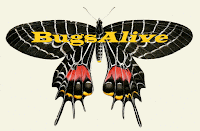P o l y u r a a t h a m a s
This page has been updated - Click Here to View
Common Name:
Taxonomy:
Morphology:
Sexual Dimorphism:
Distribution:
Flight time:
Habitat:
Life History:
Voltinism:
Larval hosts:
(all locations)
Adult food sources:
(all locations)
Photos:
(Click to view large)
the Common Nawab Photos at the bottom of the page
Arthropoda - Insecta - Lepidoptera - Nymphalidae - Charaxinae - Polyura - athamas (Drury, 1773)
wingspan - 45-65mm, wing colour - UpF black with large pale green patch and two apical spots of similar colour, UpH pale green patch continues from forewing and rear edge is decorated with white and yellow flashes; UnF and UnH similar to upperwing but base colour is light brown, eye colour - black, proboscis colour - yellow, antennae colour - black, abdomen colour - black, leg colour - black/white, flight - fast
sexes are very similar but the female is a little larger than the male
Sri Lanka, India, Nepal, Bhutan, Bangladesh, Myanmar, Thailand, Laos, Cambodia, Vietnam, southern China, Malaysia, Indonesia, Philippines
all year depending on location
evergreen and deciduous forest, scrubland, up to 2500m a.s.l. Usually seen near streams and waterfalls.
¦¦ egg 5 days ¦¦ instar1 5 days ¦¦ instar2 5 days ¦¦ instar3 5 days ¦¦ instar4 6-7 days ¦¦
¦¦ instar5 8 days ¦¦ pupa 10-11 days ¦¦ Total egg-adult 45-46 days. All times approximate.
multivoltine
Tamarindus indica, Acacia caesia, Acacia catechu, Acacia farnesiana, Acacia moluccana, Acacia pennata, Acacia sinuata, Acacia concina, Adenanthera pavonina, Albizia chinensis, Albizia corniculata, Albizia julibrissin, Albizia lebbeck, Albizia milletti, Albizia stipulata, Archidendron clypearia, Caesalpinia bonducella, Caesalpinia crista, Caesalpinia globulorum, Caesalpinia mimosoides, Caesalpinia regia, Caesalpinia sappan, Calliandra surinamensis, Delonix regia, Leucaena leucocephala, Peltophorum pterocarpum, Peltophorum dasyrachis, Pithecellobium dulce (Fabaceae), Grewia sp. (Malvaceae), Ventilago maderaspatana (Rhamnaceae), Helicteres isora (Sterculaceae)
Actual host plant used depends upon location and availabilty of plant species.
Nectar: not known to feed on flowers
Other: mud puddling, animal dung, rotting fruit, carrion






